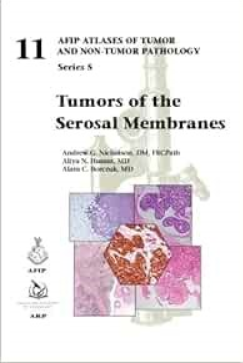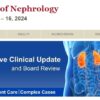-
×
 Kaplan & Sadock's Concise Textbook of Clinical Psychiatry Fifth Edition
1 × $66.07
Kaplan & Sadock's Concise Textbook of Clinical Psychiatry Fifth Edition
1 × $66.07 -
×
 Hippo Primary Care Bootcamp: Peds 2023
1 × $60.00
Hippo Primary Care Bootcamp: Peds 2023
1 × $60.00 -
×
 Perioperative Medicine Part 2 – Cardiothoracic Anesthesiology 2020
1 × $35.00
Perioperative Medicine Part 2 – Cardiothoracic Anesthesiology 2020
1 × $35.00 -
×
 USCAP Placental and Perinatal Pathology A Tour of Common and Rare Disorders with a Focus on Clinical Relevance 2023
1 × $100.00
USCAP Placental and Perinatal Pathology A Tour of Common and Rare Disorders with a Focus on Clinical Relevance 2023
1 × $100.00 -
×
 The Pass Machine General Pediatrics Board Review v 7.1 2022
1 × $90.00
The Pass Machine General Pediatrics Board Review v 7.1 2022
1 × $90.00 -
×
 AAFP Family Medicine Board Review Self-Study 15th Edition (Complete HTML) 2022
1 × $40.00
AAFP Family Medicine Board Review Self-Study 15th Edition (Complete HTML) 2022
1 × $40.00 -
×
 Intensive Update in Pain Management 2022
1 × $45.00
Intensive Update in Pain Management 2022
1 × $45.00 -
×
 ECHO-Guided Life Support Using ultrasound to categorise shock and guide initial management
1 × $15.00
ECHO-Guided Life Support Using ultrasound to categorise shock and guide initial management
1 × $15.00 -
×
 AAOS/OTA Orthopaedic Trauma Update in Tactics and Techniques 2022 (Videos)
1 × $40.00
AAOS/OTA Orthopaedic Trauma Update in Tactics and Techniques 2022 (Videos)
1 × $40.00 -
×
 The Brigham Update In Hospital Medicine 2022
1 × $40.00
The Brigham Update In Hospital Medicine 2022
1 × $40.00 -
×
 The Medical Letter 1-year Subscription
1 × $20.00
The Medical Letter 1-year Subscription
1 × $20.00 -
×
 Harvard Infectious Diseases in Adults 2021
1 × $45.00
Harvard Infectious Diseases in Adults 2021
1 × $45.00 -
×
 Tumors of the Serosal Membranes (AFIP Atlas of Tumor and Non-Tumor Pathology, Series 5, 11) (Original PDF from Publisher)
1 × $70.00
Tumors of the Serosal Membranes (AFIP Atlas of Tumor and Non-Tumor Pathology, Series 5, 11) (Original PDF from Publisher)
1 × $70.00 -
×
 Saudi Heart Association 34th Annual Conference 2023
1 × $30.00
Saudi Heart Association 34th Annual Conference 2023
1 × $30.00 -
×
 Osler Psychiatry Online Review 2020 ( Videos)
1 × $45.00
Osler Psychiatry Online Review 2020 ( Videos)
1 × $45.00 -
×
 Abdominal Ultrasound Registry Review, Updated March 2021 (Videos + Exam-mode Quiz)
1 × $35.00
Abdominal Ultrasound Registry Review, Updated March 2021 (Videos + Exam-mode Quiz)
1 × $35.00 -
×
 2022 ASTRO Annual Meeting On Demand
1 × $45.00
2022 ASTRO Annual Meeting On Demand
1 × $45.00
2024 Inaugural Symposium on Kidney Transplantation in Plasma Cell Disorders — On Demand
$50.00
This Product is shared via google drive download link, So please share your correct Gmail id while placing the order .Please note that there are no CME points or certificate associated with this course Samples for Courses Can be found here : Free Samples Here!
Categories: Hematology / Oncology, Nephrology
Tags: Hematology / Oncology, Nephrology
2024 Inaugural Symposium on Kidney Transplantation in Plasma Cell Disorders — On Demand
Specialties
- Specialties – Allergy and Immunology, Bone Marrow Transplant, Clinical Pathology, Hematology, Hematopathology, Internal Medicine, Myeloma, Nephrology, Nurse
- Practitioner, Nursing, Oncology and Hematology, Urology
- Overview
- We’re excited to offer an on-demand option for the Inaugural Symposium on Kidney Transplantation in Plasma Cell Disorders, originally held live on
- September 12, 2024 in New York City. This program features multidisciplinary experts from Memorial Sloan Kettering Cancer Center and around the world, spanning
- specialties such as hematology, nephrology, surgery, pathology, immunology, and bioethics. Presentations address essential topics related to the evaluation and
- management of plasma cell dyscrasia patients being considered for kidney transplantation, including:
- Updates in MGRS pathology and classification;
- The latest developments in clone-directed therapy and outcomes;
- Assessing depth of response;
- Updates on transplant biology and immunology;
- Complications of renal transplantation in patients with plasma cell disease; and
- Fair distribution of a scarce resource and role of living donor transplantation.
Additionally, the program includes a patient and clinician roundtable discussion, as well as a workshop on best practices for managing distinct disease entities.
For further information about the content available in this on-demand program, please refer to the brochure from the live course.
Objectives
At the conclusion of this program, attendees will be able to:
- Describe the pathology and classification of the distinct subtypes of MGRS
- Summarize the updates in treatment and outcome assessment in the common plasma cell dyscrasias including multiple myeloma, light chain amyloidosis and MIDD
- Review the methods for assessing depth of response in plasma cell disorders and their added value and limitations
- Explain critical components of transplant biology and immunology that inform renal transplant practice
- Describe common complications of renal transplantation and management
- Discuss barriers to access to renal transplantation, strategies improve more equitable distribution and the role of living donor transplantation
Related products
Hematology / Oncology
USCAP THORAX DECONSTRUCTED Experts Guide to What Can Go Wrong Inside the Chest 2023
$60.00

 Hippo Primary Care Bootcamp: Peds 2023
Hippo Primary Care Bootcamp: Peds 2023  Perioperative Medicine Part 2 – Cardiothoracic Anesthesiology 2020
Perioperative Medicine Part 2 – Cardiothoracic Anesthesiology 2020  USCAP Placental and Perinatal Pathology A Tour of Common and Rare Disorders with a Focus on Clinical Relevance 2023
USCAP Placental and Perinatal Pathology A Tour of Common and Rare Disorders with a Focus on Clinical Relevance 2023  The Pass Machine General Pediatrics Board Review v 7.1 2022
The Pass Machine General Pediatrics Board Review v 7.1 2022  AAFP Family Medicine Board Review Self-Study 15th Edition (Complete HTML) 2022
AAFP Family Medicine Board Review Self-Study 15th Edition (Complete HTML) 2022  Intensive Update in Pain Management 2022
Intensive Update in Pain Management 2022  ECHO-Guided Life Support Using ultrasound to categorise shock and guide initial management
ECHO-Guided Life Support Using ultrasound to categorise shock and guide initial management  AAOS/OTA Orthopaedic Trauma Update in Tactics and Techniques 2022 (Videos)
AAOS/OTA Orthopaedic Trauma Update in Tactics and Techniques 2022 (Videos)  The Brigham Update In Hospital Medicine 2022
The Brigham Update In Hospital Medicine 2022  The Medical Letter 1-year Subscription
The Medical Letter 1-year Subscription  Harvard Infectious Diseases in Adults 2021
Harvard Infectious Diseases in Adults 2021  Tumors of the Serosal Membranes (AFIP Atlas of Tumor and Non-Tumor Pathology, Series 5, 11) (Original PDF from Publisher)
Tumors of the Serosal Membranes (AFIP Atlas of Tumor and Non-Tumor Pathology, Series 5, 11) (Original PDF from Publisher)  Saudi Heart Association 34th Annual Conference 2023
Saudi Heart Association 34th Annual Conference 2023  Osler Psychiatry Online Review 2020 ( Videos)
Osler Psychiatry Online Review 2020 ( Videos)  Abdominal Ultrasound Registry Review, Updated March 2021 (Videos + Exam-mode Quiz)
Abdominal Ultrasound Registry Review, Updated March 2021 (Videos + Exam-mode Quiz)  2022 ASTRO Annual Meeting On Demand
2022 ASTRO Annual Meeting On Demand 









